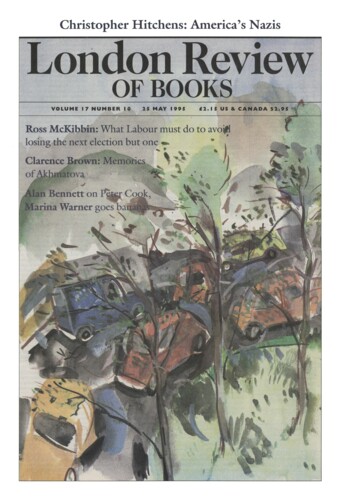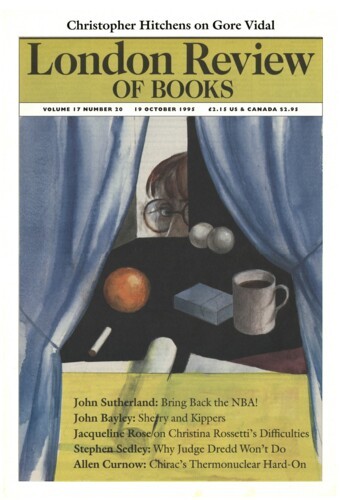Arctic Habits
Tony Tanner, 25 May 1995
To a person inquiring about his life, Emerson wrote: ‘I have no history, no fortunes that would make the smallest figure in a narrative. My course of life has been so routinary, that the keenest eye for point or picture would be at fault before such remediless commonplace. We will really say no more on a topic so sterile.’ Not so, responds Robert Richardson; we will say 670 pages more on the topic. By the end you might wonder whether Emerson wasn’t rather in the right of it. An unremarkable, rather spartan, childhood; average performances at school and university; an appointment to, followed by a resignation from, the Unitarian Church; three short trips to Europe; two marriages; the loss of a young son; agitation over the slavery issue – and some fifty placid years in Concord. In one year ‘he reorganised his notebooks’; in another he ‘took a new interest in fruit trees’. When such things loom large enough for biographical attention, you sense that it was a pretty quiet life. But Richardson might fairly object that the more important matter is the story of the growth of Emerson’s mind, his intellectual adventures, his creative life. A detailed version of this is what we certainly get, and I doubt if it has previously been attempted so comprehensively. The determination to be exhaustive and definitive is clear on every page; but the result is not unequivocally felicitous.’


